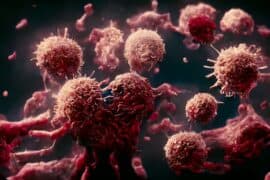
After centuries of speculation, here's why cannabis causes "the munchies"
Researchers at Washington State University have uncovered a key mechanism in the brain that promotes appetite, commonly known as “the munchies,” specifically when activated by cannabis.
This significant discovery advances our understanding of how cannabis triggers hunger, often referred to as “the munchies.” The research also opens new avenues for developing treatments for various appetite disorders.
Cannabis and the “munchies”
The munchies typically refers to a sudden increase in appetite or craving for food, often experienced after using cannabis.
This phenomenon is quite common among cannabis users and is often characterized by a desire for high-calorie snack foods.
Cannabis is known to activate certain receptors in the brain that increase hunger, making food seem more appealing, both in terms of taste and smell.
The Washington State team has discovered new details of how cannabis affects the brain to stimulate appetite.
“The appetite promoting effects of cannabis sativa have been recognized for centuries, however, surprisingly, the biological mechanisms that underlie this process have remained largely unknown,” wrote the study authors.
In a controlled set of animal studies, mice were exposed to vaporized cannabis sativa. The researchers used calcium imaging technology, similar to a brain MRI, to observe the response of brain cells.
Calcium imaging has been previously used to study brain reactions to food, but never in the context of cannabis exposure.
What the researchers learned
The scans revealed that cannabis activated brain cells in the hypothalamus when the mice anticipated and consumed food. These cells were not activated in mice that were not exposed to cannabis.
“When the mice are given cannabis, neurons come on that typically are not active,” said study co-author Professor Jon Davis. “There is something important happening in the hypothalamus after vapor cannabis.”
The cells that were activated in the hypothalamus of the exposed mice are controlled by the cannabinoid-1 receptor.
This receptor is a well-known target of cannabis and influences the activity of “feeding” cells in the hypothalamus called agouti-related protein neurons.
Utilizing a chemogenetic technique, which functions like a molecular light switch, the researchers were able to focus on these neurons in animals exposed to cannabis.
Intriguingly, when the neurons were deactivated, cannabis ceased to promote appetite.
Marijuana, munchies, and future implications
This discovery has significant implications for treating appetite disorders, such as those experienced by cancer patients, individuals with anorexia, and potentially those with obesity.
By understanding the specific brain mechanisms activated by cannabis, more refined and targeted therapies can be developed.
The study builds on earlier work from Davis’ lab, which was pioneering in using vaporized cannabis plant matter for animal studies (as opposed to injected THC). This approach is closer to how cannabis is used by humans.
Previous research from the lab identified genetic changes in the hypothalamus in response to cannabis use.
Based on their latest results, the experts conclude that the munchies are triggered by the activation of neurons in this brain region.
More about cannabis and appetite
As mentioned above, Ccannabis has garnered significant attention for its potential to stimulate appetite in cancer patients, an aspect crucial in their overall health management.
This benefit primarily stems from certain compounds in cannabis, notably THC (tetrahydrocannabinol), which interact with the body’s endocannabinoid system. This interaction can trigger an increase in hunger, commonly known as “the munchies,” a familiar phenomenon among cannabis users.
Cancer patients, cannabis and the munchies
For cancer patients, this effect can be particularly beneficial. Cancer treatments like chemotherapy often lead to severe side effects, including nausea, loss of appetite, and weight loss.
By stimulating appetite, cannabis can help patients maintain a healthier weight and improve nutrient intake. This aspect of cannabis use is not just about alleviating hunger but also about enhancing the patient’s overall sense of well-being and quality of life.
Cannabis alleviates chemotherapy side effects
Furthermore, cannabis can also play a role in reducing nausea and vomiting, common side effects of chemotherapy. By alleviating these symptoms, cannabis not only encourages patients to eat but also helps them retain their food, ensuring better absorption of nutrients.
It’s important to note that while cannabis can be beneficial for stimulating appetite in cancer patients, its use should always be under the guidance of a healthcare professional.
Different strains of cannabis and various forms of consumption (smoking, edibles, oils, etc.) can have varying effects, and what works for one patient might not be suitable for another.
In summary, cannabis offers a promising avenue for addressing appetite loss in cancer patients. Its ability to stimulate hunger and reduce nausea can play a critical role in improving their nutritional status and overall quality of life. However, its use should be carefully managed and tailored to individual patient needs.
The study is published in the journal Scientific Reports.
Like what you read? Subscribe to our newsletter for engaging articles, exclusive content, and the latest updates.
—–
Check us out on EarthSnap, a free app brought to you by Eric Ralls and Earth.com.
—–












